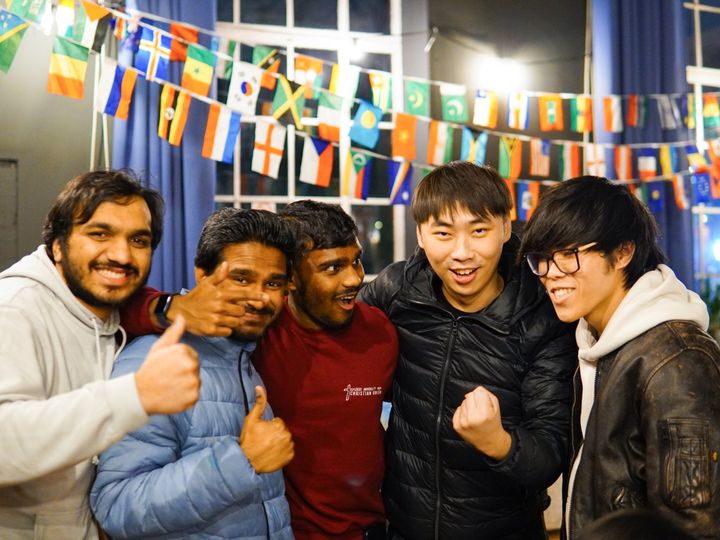
Most university campuses will have a significant number of international students. It’s really important we think about how we might best reach them — see Why do international events? for why this is so important.
There are several ways to adapt your Events Week to be much more open to international students. Look at the following and see what might fit best with your university centre and decide what you might be able to manage in terms of time, people and resources.
Before going any further, it is important to say that food is a hugely important factor in reaching international students. If you can show love, hospitality and friendship through food, this will go a long way to building friendships. Food tends to turbocharge your advertising effort!
- A dinnertime international student track can be an amazing and exciting thing to do, but be warned — this tends to be only a viable option for large CUs with sufficient resources. Typically, this tends to be a series of dinnertime talks put on in the early evening, after lectures, and before the later Evening Events. If your venue is the same for both dinnertime and evening talks, make sure things run on time, and that the people running each event are considerate of each other. (You don’t want the band to be testing the sound system during the International Track Q&A!).
- A completely separate International Student Events Week can be a good idea in some centres, run at a different time of year to the ‘main’ Events Week. However, there are drawbacks, namely that the CU may not have the energy and focus to run two Events Weeks in one academic year, so it can become only for those who have a ‘special interest’ in reaching international students… and therefore ignored by most. It also tends to exacerbate people’s fears about ‘segregation’.
- An introductory event (or events) leading up to the Events Week, or at the start of the week is a popular choice for some CUs. It means that (a) international students are getting something that speaks to their needs, and (b) acts as an invitation to the rest of the week’s talks. The main drawback is that it may actually not achieve either aim, as it may do little more than appear a ‘token’ event, and, unless there is a very active push to advertise it before the Events Week (thus without the help of CUGs), it may simply miss the people it was intended for.
- A hybrid week of international and more general events involves planning each track (lunch bar talks, ‘main’ evening talks and other events) to include specific questions and topics that have a clear international focus. It will require having a speaker (or speakers) who can deal with questions and issues from a non-Western perspective, alongside speakers who can address Western, post-modern, post-Christian students. So, for example, the international speaker may take two evening talks and two lunch bars, or similar. The invited speakers would need to know that is what you are planning, so that they can decide whether they can commit to this arrangement. This is a good option, as it shows a commitment to answering the questions that internationals may have, whilst keeping the whole week obviously ‘for everyone’.
- A fully integrated Events Week is not just another way of saying we do what we would normally do, with the odd token reference to internationals through the week! Rather, this involves inviting speakers who are already well-able to speak to international students, who perhaps have extensive missions experience, are from different cultures, or otherwise familiar with working with international students. This may well be the best option for universities and CUs that are already very international.